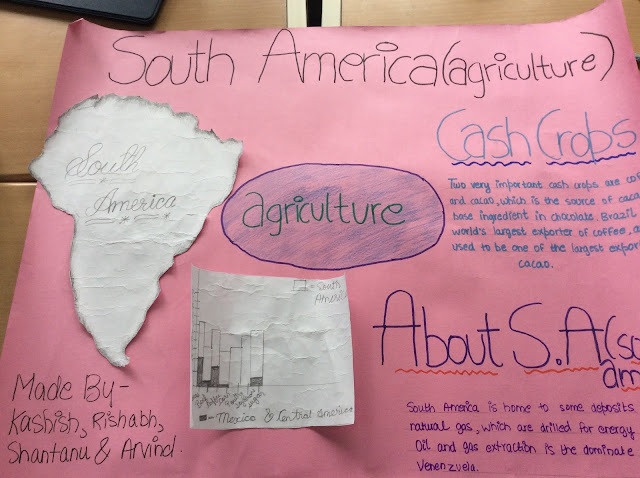The Power of Peer Assessment
by Harsha Pherwani
While assessing their peers the students enhance their own learning and self-confidence. They get a deeper understanding and gain an insight into their own approach to an assessment task in comparison to their peers. This collaborative learning technique helps the students to develop their listening, communication and thinking skills.
As a part of Language and Literature Unit - “Childhood” the students of MYP 1 did a Formative Assessment based on GRASPS model in which the students produced their self written scripts as budding scriptwriters and presented it in front of the students who enacted as the directors. Before the group peer assessment, the students were made to understand the purpose of such an evaluation and what is expected of them. Such assessment criteria were provided to the students that supported effective peer assessment. The learners not only evaluated their peers’ performance but also provided them with meaningful feedback.
During the process of peer assessing, the students showcased various IB learner profile attributes of being open minded – acceptance of criticism positively; communicator – giving feedback and presenting the plot of their script; and lastly, balanced – giving unbiased judgment of their peers’ performance.'
Peer assessment is a learning tool wherein the students
assess their peers’ work and have their work assessed by peers. It gives an
opportunity to the learners to comprehend the assessment criteria in a
better manner along with increased motivation and engagement in the class. The
students give feedback on the quality of their peers’ work, often with ideas
and strategies for improvement.
While assessing their peers the students enhance their own learning and self-confidence. They get a deeper understanding and gain an insight into their own approach to an assessment task in comparison to their peers. This collaborative learning technique helps the students to develop their listening, communication and thinking skills.
Richard Branson has rightly quoted that “The best way of
learning about anything is by doing.”
As a part of Language and Literature Unit - “Childhood” the students of MYP 1 did a Formative Assessment based on GRASPS model in which the students produced their self written scripts as budding scriptwriters and presented it in front of the students who enacted as the directors. Before the group peer assessment, the students were made to understand the purpose of such an evaluation and what is expected of them. Such assessment criteria were provided to the students that supported effective peer assessment. The learners not only evaluated their peers’ performance but also provided them with meaningful feedback.
During the process of peer assessing, the students showcased various IB learner profile attributes of being open minded – acceptance of criticism positively; communicator – giving feedback and presenting the plot of their script; and lastly, balanced – giving unbiased judgment of their peers’ performance.'
Peer assessment is an effective pedagogical strategy for
teaching and learning process which breaks the traditional concept of
evaluation and encourages the involvement of the students in the Assessment for
Learning.
 |
| Harsha Pherwani |










Comments
Post a Comment